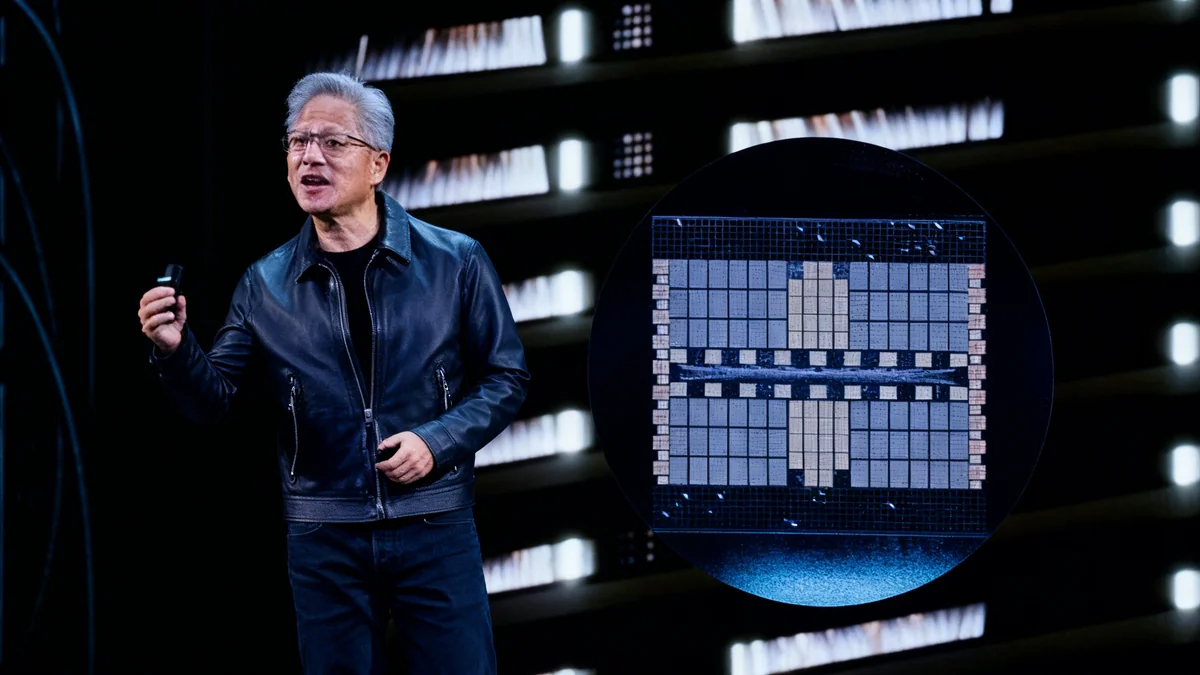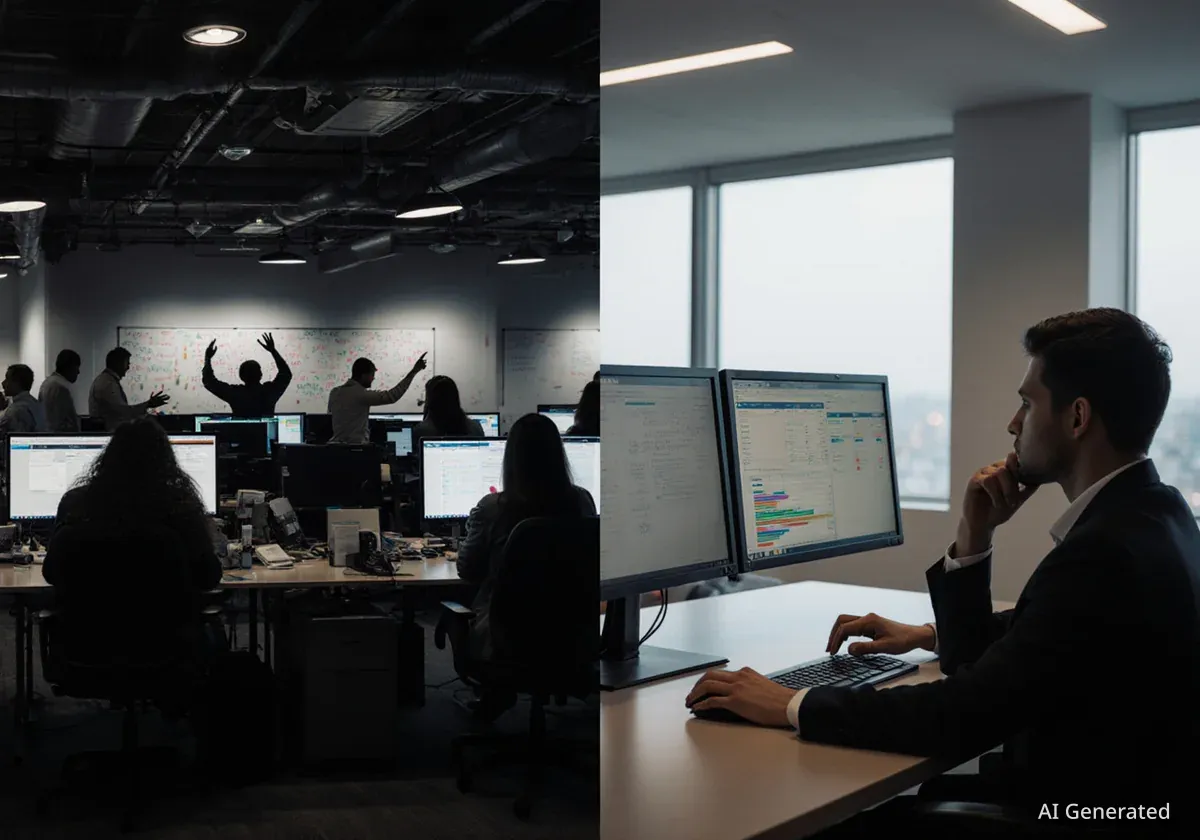Wei Khjan Chan, an accountant with nearly two decades of experience, faced a growing concern shared by many professionals: the potential for artificial intelligence to make his job obsolete. Rather than wait for that possibility, he took a proactive step, learning a new skill he calls "vibe coding" to work with AI, not against it.
By leveraging AI-powered tools, Chan, who has no formal technical background, successfully built a web application to streamline a tedious part of his job. His journey offers a practical example of how professionals can adapt to technological shifts and use AI to enhance their careers instead of being replaced by it.
Key Takeaways
- Wei Khjan Chan, a 39-year-old accountant in Malaysia, learned AI-assisted coding to counter the threat of job automation.
- Without prior technical skills, he built a web app that automates expense claim processing using AI-powered optical character recognition.
- Chan views AI proficiency as a fundamental skill for office professionals, similar to knowing how to use Excel.
- He advocates for broader AI training within the accounting industry to address manpower shortages and increase efficiency.
Facing the Automation Challenge
For more than 18 years, Wei Khjan Chan has built a career in accounting, a field increasingly identified as susceptible to disruption from artificial intelligence. The constant headlines about AI's potential to automate tasks traditionally performed by accountants created a sense of urgency for the 39-year-old audit partner.
He described feeling mounting pressure with each new report suggesting his profession was at risk. This concern motivated him to take control of his professional future.
"It'll be great if I get to know AI earlier. At least I replace myself rather than let other people replace me," Chan stated, explaining his proactive mindset.
This decision led him to explore a new approach to software development known as "vibe coding," which involves using AI tools to write and debug code. This method allows individuals without a deep understanding of programming languages to build functional applications.
From Accountant to App Developer
Chan's journey into the world of coding began in June after he attended several weekend workshops in Singapore and Malaysia. Despite his lack of a technical background, he quickly saw the potential to solve a persistent problem in his own professional life: the time-consuming process of filing expense claims after business trips.
Using his newfound skills, Chan developed a web application designed to simplify this task. The app uses AI-powered optical character recognition (OCR) to automatically scan, read, and process information from receipts. It then exports the data into organized files, ready for submission to his company's finance department.
Practical Application of AI
The expense-tracking app built by Chan is not just a personal project. It serves as a proof of concept for how AI can handle routine administrative tasks, freeing up professionals to focus on more complex, strategic work. He has also begun using AI to automate other parts of his workflow, such as generating invoices.
Showing his application, Chan pointed to the underlying code. "This code is a bunch of JavaScript, which obviously I don't understand," he said. "Without the vibe coding tools and the skill set, an accountant is unable to do this."
His experience demonstrates a significant shift in application development. What once required a dedicated team of developers and weeks of work can now be prototyped by a single individual over a weekend.
AI as a Foundational Skill
Chan is clear that his goal was not to switch careers and leave accounting behind. Instead, he sees AI literacy as an essential competency for nearly every office profession in the modern era. He compares it to the importance of being proficient with spreadsheet software.
"AI know-how is a fundamental skill, like Excel," he emphasized. He believes that understanding how to leverage these tools is becoming non-negotiable for staying relevant in the workforce.
Addressing an Industry-Wide Problem
The accounting profession is currently facing a dual challenge: a rising demand for services coupled with a declining number of people entering the field. According to Chan, this creates a significant manpower shortage. He suggests that AI can be a powerful tool to bridge this gap by automating repetitive tasks and allowing existing accountants to be more productive.
As an active committee member in his local accounting institute in Malaysia, Chan is now advocating for the broader adoption of AI training within his industry. He is lobbying for structured programs to be implemented at scale, ensuring that other accountants have the opportunity to develop the skills needed to thrive alongside AI.
Lessons Learned from Vibe Coding
Chan's self-taught journey provided several practical insights into working effectively with AI development tools. He shared that while initial advice often suggests writing long, highly detailed prompts, he found a more iterative approach to be superior.
"The initial prompt is very important to set everything right," he explained. After establishing the foundation, he found it more effective to make small, incremental adjustments rather than providing a long list of changes at once. He likens the process to managing a junior employee.
"Break tasks into smaller, precise instructions. The more specific you are, the better the outcome," he advised.
He also learned the importance of proper planning. In one of his early projects, he designed a database for a single organization. When a user later requested support for multiple companies, he realized a fundamental design flaw required him to rebuild the entire structure from scratch.
- Start with a solid foundation: Getting the core architecture right from the beginning is critical.
- Iterate with small changes: Refine and add features one step at a time for better results.
- Treat debugging as a conversation: If an error occurs, explain the problem to the AI. A changing error message is often a sign of progress.
Chan noted that if the same error persists, he will often reset the conversation and rephrase his request with new examples to guide the AI toward a solution. He described the debugging process as being similar to "complaining to the AI."
Despite the technical nature of the work, he insists that it doesn't require endless hours of intense effort. Chan typically works on his projects in the evenings after his children are in bed, adding a new feature or refining a function. "It's like playing a game," he said. Over time, these small efforts accumulate into a fully functional application.





